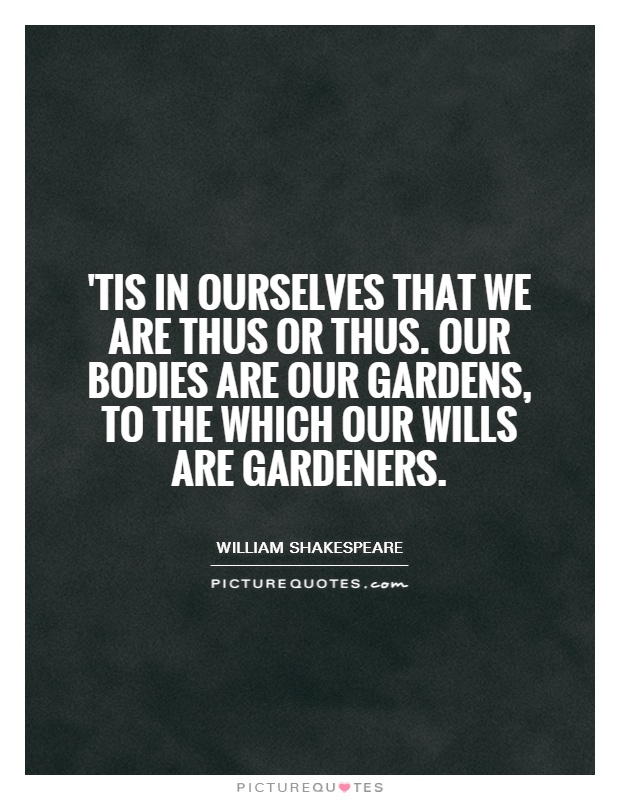'Tis in ourselves that we are thus or thus. Our bodies are our gardens, to the which our wills are gardeners

'Tis in ourselves that we are thus or thus. Our bodies are our gardens, to the which our wills are gardeners
In William Shakespeare's play, Othello, the character Iago speaks the famous lines, "'Tis in ourselves that we are thus or thus. Our bodies are our gardens, to the which our wills are gardeners." These words hold a profound truth that resonates throughout the entire play and in many of Shakespeare's works.The idea that our actions and behaviors are a reflection of our inner selves is a central theme in Othello. Iago, the cunning and manipulative villain of the play, uses his willpower to sow seeds of doubt and jealousy in Othello's mind, ultimately leading to tragic consequences. Iago's actions are a direct result of his own twisted desires and motivations, demonstrating how our inner thoughts and intentions can manifest in our outward behavior.
The metaphor of the body as a garden and our wills as gardeners is a powerful image that highlights the importance of self-control and self-awareness. Just as a gardener must tend to their garden to ensure it flourishes, we must cultivate our own minds and hearts to lead fulfilling and virtuous lives. Our willpower is the tool with which we shape our destinies, and it is up to us to use it wisely and responsibly.
Shakespeare often explores the complexities of human nature and the power of individual agency in his works. Through characters like Iago, Macbeth, and Hamlet, he delves into the depths of the human psyche and examines the consequences of unchecked ambition, jealousy, and revenge. The quote, "'Tis in ourselves that we are thus or thus," serves as a reminder that we have the power to choose our paths and shape our own destinies.
Ultimately, Shakespeare's words remind us of the importance of self-reflection and self-awareness. By recognizing the influence of our inner selves on our outward actions, we can strive to be better gardeners of our own lives, nurturing our minds and hearts with kindness, compassion, and integrity.












 Friendship Quotes
Friendship Quotes Love Quotes
Love Quotes Life Quotes
Life Quotes Funny Quotes
Funny Quotes Motivational Quotes
Motivational Quotes Inspirational Quotes
Inspirational Quotes